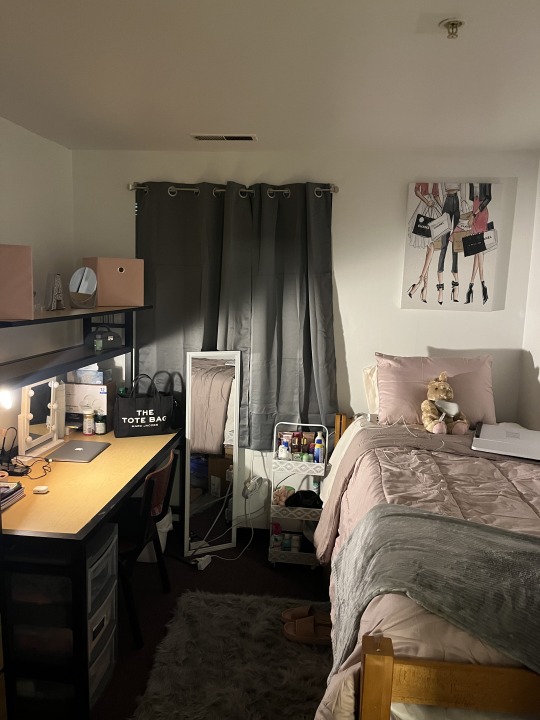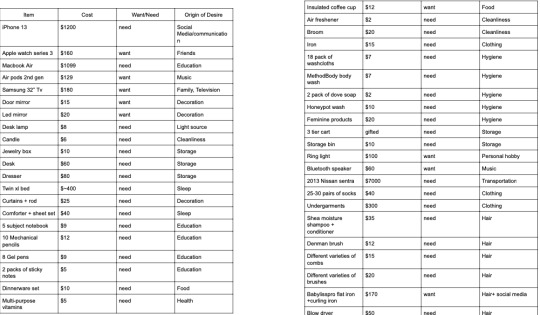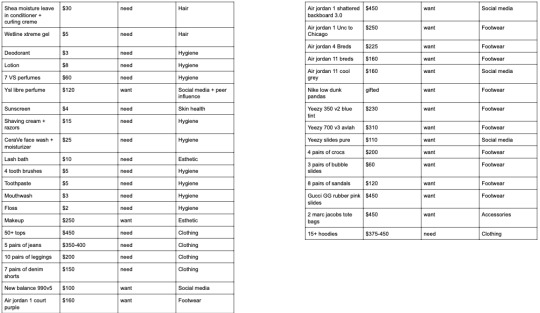Text
Class and Inequality

Karl Marx
Karl Marx believed that there were only 2 distinct classes: the bourgeoisie and the proletariat. The bourgeoisie refers to the upper class in society who own the means of production (factories, machines, financial capital, etc. needed to produce things). While the proletariat refers to the working class who sold their labor (to the bourgeoisie) in exchange for wages. Marx recognized labor as the "key source of value and profit in the marketplace" (Cultural Anthropology 3rd edition). Not to be confused with the concept of rich and poor, Marx's 2 classes simply distinguish between the owner of means of production and the working class. For example, small business owners and farmers would be considered bourgeoisie, because they own means of production. The article that I found discusses a group of call center workers who decided to go on strike. These workers experienced unfair wages and working conditions, claiming that their pay was too low and the workload was too stressful. The workers expressed that they were far more than just call center representatives, and explained that they played multiple roles including counselors. One specific worker described a very tough call that she received in which the customer expressed her intent to commit suicide, therefore displaying why they deserve higher pay. This strike is an example of Karl Marx's theory because it demonstrates the proletariat (call center workers) using their power (labor) to receive fair conditions in the workplace. Although the proletariat may seem like they have no power in comparison to the bourgeoisie, when they do things such as go on strike, they leave the bourgeoisie no choice but to listen to their demands. If the proletariat stop working, how will society succeed?
Max Weber
Similar to Marx, Weber had the same views in regard to economic stratification, but with his theory added the concepts of power and prestige. Weber recognizes the idea that the influence that people may have on others due to their reputation or occupation. Max Weber's theory focuses on the 3 P's: power, property, and prestige, if an individual has one of the P's, it is relatively easy to obtain the others. The article that I found is about our former president, Donald Trump, who is an example of a person whose occupation allowed them to have a huge influence on others. In multiple instances, Donald Trump used his presidential powers to coerce his followers to do certain things, in this case, storm the U.S Capitol on January 6, 2021. This article discusses the way in which Trump urged his supporters to storm the capitol and to "fight like hell". Considering Trump's large influence due to his presidential power, his supporters took his words quite literally, as the rally transformed into a violent mob. Trump's action of inciting an insurrection represents a powerful individual abusing their power to influence others, therefore proving Weber's theory.
Pierre Bourdieu
Bourdieu's theory has three main concepts: social reproduction, social mobility, and cultural capital. Specifically, with the article I found, I will be focusing on the element of cultural capital. Cultural capital refers to the "knowledge, habits, and tastes learned from the family that individuals can use to gain access to scarce and valuable resources in society" (Cultural Anthropology 3rd edition). According to Bourdieu, there are three types of cultural capital: embodied, objectified, and institutionalized. The article that I discovered focuses on an example of embodied cultural capital, one's accent/dialect, and how it affects them regarding job opportunities. Through research, it has been found that individuals with foreign accents typically face discrimination at job interviews. Not only does a certain accent affect your job opportunities, but also the heaviness of your accent as well. Those with heavier accents are more likely to be disqualified from positions, such as those which require public speaking or general verbal communication. One's accent may also cause hiring managers to underestimate an individual's qualifications for a job, regardless of their true abilities. The findings of this article prove Bourdieu's theory regarding cultural capital, as it plays a role in one's status/power within society.
1 note
·
View note
Text
Blood Is Thicker Than Water

Origin Story
First and foremost, this family tree tells the story of two distinct couples who started their lives in Jamaica (my grandparents on both sides), and at some point in their lives decided to move to America. On my father’s side, him along with his siblings were born in Jamaica and migrated here alongside their parents. While on my mother’s side, her and her siblings were all born in America, so they are first generation Americans within their family. We then move down to my cousins, brothers, and I who were all born in America as well. On my father’s side, my brothers and I are considered first generation Americans since our father’s side had migrated here.
Culture

My kinship diagram shows an entirely Jamaican/American lineage. On both sides, Jamaican heritage resides, and all members within the diagram currently reside in America.
I mention this because as we view the diagram, you can see that majority of the couples have been divorced, specifically all except for one. This is interesting considering the concept of family and marriage is extremely important in Jamaican culture, as divorces are less common in Jamaica in comparison to other countries.
Power Dynamic

Although this cannot be seen within the diagram, I believe this is an interesting fact to tell… The power dynamic for both sides of my family is the opposite of what one might expect it to be. Within households (in all romantic relationships listed) , the woman was/is actually the head of the household and typically ran operations within the house. I am not sure if this is due to Jamaican culture or influenced by black culture, but it is interesting that this fact is true for both sides of my family. Both my grandmother’s had to take care of their children on their own after divorcing from their husbands, so they had no choice other than to act as both parents within the house. For the next generation (2nd line of diagram), the same is true except the women dominated their households even prior to the separation. I wonder if this is due to what they’ve experienced growing up, and whether or not this will be passed on to my generation as well.
Fun Fact!
Something that stands out on this diagram is the fact that I have no first-cousins on my mother’s side of the family. It just so happened that my mom was the only one out of her siblings to have children! Whenever I ask her siblings why, they always state that since my mom had me at a young age (20), that they collectively raised me and that they basically felt like I was their child too!
1 note
·
View note
Text
Jamaican+American=???... "Jamerican"....!

Growing up I always questioned my identity and struggled with the concept of ethnic identity. Does having family from Jamaica automatically make me Jamaican? But I don't speak patois nor was I born in Jamaica... So does that make me simply American?.. But I partake in Jamaican culture: I understand patois, eat Jamaican food, and listen to their music. So what does this make me? I distinctly remember having this conversation with my mom when I was 9 years old, and that was the first time that I heard the term "Jamerican". Although this is not a *real* term, it is typically used to describe a person who either: 1) is American being raised by Jamaican parents or 2) was born in Jamaica and became accustomed to American culture (able to codeswitch, partakes in American culture, etc). I believe the term "Jamerican" is the perfect way to describe my current family, as they were born in Jamaica (I am a first-generation American) yet practice American culture.

My family's maternal and paternal sides originated in Jamaica and eventually migrated to America. My mother's side specifically from St. Thomas and my father's from Montego Bay. My great aunt, Edasmey Lee Chang, was the first on my father's side to migrate to America in 1988 (34 years ago), while my great great grandmother, Daphne Reid, migrated here in 1973 (49 years ago). Above is a picture of my great great grandmother (left), her mother (middle), and her brother (right). Both sides of my family migrated to America for the same reason: for better opportunities (education and vocational), which I believe slightly ties into American culture, as America is referred to as the "land of opportunity". Despite my family moving from Jamaica to America, on both sides they remained true to their roots and maintained the Jamaican culture while still embracing American culture. Below I have included a brief interview of my great-great grandmother from 2021, who celebrated her 101st birthday and gave insight into her life in America.
youtube
As she reminisces on her 101 years of life, my great-great-grandmother is sure to give props to relevant American figures such as Martin Luther King Jr. and John F Kennedy. She explains that such figures have gained her respect as they have "fought for social equity". Concepts such as racial, gender, economic, and social equity are all parts of American culture, further depicting how despite her being Jamaican she is still involved.
American Nationalism

Although my family participates in American culture in simple ways, such as celebrating the 4th of July, I do not believe that they technically embrace American nationalism. Truthfully, my family's strong Jamaican pride still remains and overpowers any sense of American pride that they may have. Although Jamaica is not perfect, if you asked a member of my family about Jamaica you would hear about the bright side. While if you were to ask them about America, you would most likely hear a very long list of complaints and issues America/Americans have.
Conclusion

Talking with my family members/interviewing them for this assignment has created a shift in my view of ethnicity. Referring back to the beginning of this post, I now have a defined answer for 9-year-old me, YOU ARE YOU. There is no need to have a distinct label on what you are/identify as. Regarding my ethnic identity I always tried to not be "too Jamaican" nor "too American", but completing this has helped me learn that I should take pride in both sides! I know that either country is perfect, but both are a part of my family's origin story. This also caused me to question something: what if my family decided to move to another country, for example, Canada, then what would a future child or grandchild of mine identify as? Canada and America aren't too different, but I'm sure my family would not simply just drop all of the American traditions that we've practiced for so long... so what would that make them?
2 notes
·
View notes
Text
What is race?
The debate that has gone on for many years is: what is race?

From our textbook, race is defined as "a flawed system of classification, created, and re-created over time, that uses certain physical characteristics to divide the human population...". Race also has no biological basis, meaning that there are no biological traits within our genes that determine our race. So ultimately, race exists as a social construct or human-made concept, but not as a biological concept.
Since race was created to divide humans, there has been an evident gap in power and equality amongst the groups, this concept is known as racism. Below I have included 6 concepts regarding race and racism to further explain the two concepts.
White Supremacy
youtube
The song that I included by Childish Gambino is one of the greatest examples of the effects of white supremacy within the United States. Within the song, he discusses the troubles of being a black person in a country that was constructed with racist individuals and ideals that are still present in modern times. Examples of those troubles include a church shooting that occurred in 2015 where 9 innocent black people were murdered. The YouTube clip I included is a brief video that talks about various sundown towns that are in the United States. A sundown town is an area where non-white individuals are not allowed to live, and should not be within close proximity after the sun has set (hence the name) to avoid becoming victims of gruesome acts. Both the song and YouTube video show examples of the concept that white is the "superior race" and therefore have a higher power to discriminate other racial groups.
Miscegenation
youtube

Both the clip of the wedding and the image depict people of alternate races either getting married or already married. That is mainly what the key concept of miscegenation is about, as it focuses on interracial marriage. This is a key concept of race/racism as for a while throughout history this was forbidden but is now becoming a normality in society.
Institutional Racism

Although this may seem like a picture of 5 regular men, this actually shows the central park five. These men at the ages of 14-16 were falsely accused of rape, assault, and attempted murder of a woman despite no proper evidence connecting them to the crime. This specifically shows the racial disparities that occur within the criminal justice system as rather than putting in the effort to find the actual suspect(s), they found it easier to pinpoint the crime onto 5 innocent black teenagers.
Nativism
The article above talks about Donald Trump's plan in 2020 to "suspend" immigration in response to the coronavirus. This is a prime example of nativism as Donald was trying to promote discriminatory acts by linking the coronavirus disease to immigrants, furthermore trying to preserve a nation for the "natives".
Microaggression
youtube

The clip I included is an accurate demonstration of how certain people undermine the effects of microaggressions in today's society. The cartoon I included shows examples of common verbal examples of microaggressions that people say to others. Microaggressions typically are subtle or accidental acts/comments of discrimination towards certain groups. In the cartoon, the girl in the middle may appear to be Latina explaining why the person said to her,: you don't speak Spanish?". This is a microaggression because (1)just because someone has certain features this does not mean they are Hispanic/Latino, and (2) even if she is, this does not mean she has to speak Spanish.
Hypodescent Rule
youtube

The hypodescent rule also rereferred to as the one drop rule deals with the classification of a racially-mixed individual. Many people refer to Barrack Obama as a black man, despite him being mixed as he has a white mother and black father. The video I included discusses this topic as the question poses: what determines one's blackness? Do you need to have a certain percentage of black in you to be considered black? With the hypodescent rule, as long as you have some amount of black within your ancestry, you are considered black.
Conclusion
Although the social construct of race has been created to divide us, society has worked towards a brighter future that recognizes our differences and celebrates them. Truthfully, I believe that there is only one true race and that is the human race. I don't believe in letting a man-made concept continue to divide/separate us and I hope one day we can all come to that agreement.

3 notes
·
View notes
Text
Necessity vs. Luxury

Consumer culture is not something that crosses my mind often or even at all. It is very interesting to analyze the concept of a direct relationship between a consumer and the good/service that they purchase. Personally I struggle with saving money as I typically spend things on items I do not feel like I "need", but what truly defines what we need versus things that we just want? This assignment has allowed me to change my perspective on not only the purchases that I make, but my values as well.

Above is a picture of my college room. Majority of the items you see within the picture do not take up most space on the list that I made... as most of the list consisted of materialistic items rather than living necessities. This fact alone caused me to go into a moment of introspective thinking regarding my values and priorities.


Completing this list allowed me to truly understand my role in consumer culture. Prior to this assignment I simply bought items without much thinking (excluding factors such as price), but I now feel as though majority of the purchases I have made are unnecessary. I now recognize the impact that different social standards or social trends may have on the purchases that I have made. For example within the list you can see that I included different types of Air Jordan sneakers that I own.. but is it really necessary to have so many or even any at all? Specifically where I was growing up, in elementary/middle school it was a trend to have the newest Air Jordans, and if you did you were considered a "fly kid"! The same goes for the type of phone I have, an Iphone 13, which was influenced by the idea that apple products were superior to any other. Yet here we are many years later and those same ideologies have stuck with me. Reflecting on something as small as that, has showed me that certain things we believe that we actually like/need, may only be because of how we've been influenced. I also began to think about the influence that your physical environment can have on your perception on wants vs. needs. I may view an item such as my leave-in conditioner as a necessity while another person in a different environment (or cultural background) may view it as just another "unnecessary hair product". The "origin of desire" column showed me that a few of the items I purchased on the list were influenced by social media and if it were not for it, that I would not have owned the item. Aside from this, I do believe that my priorities are (mainly😒) in order as when deciding if each item was a want or need, mostly all of the items that i need to survive were what I chose as my needed items (such as a toothbrush, toothpaste, deodorant, undergarments, personal hygiene products, etc.).
Most needed item

After deep consideration, I came to the conclusion that my car is my most needed item. Aside from the obvious, that it provides me with transportation, I believe that having a car has made my life much easier. If it were not for this car, I would not be able to accept certain work opportunities, attend important events, and complete my day-to-day activities. This car has allowed me to save a lot of money in multiple ways, and of course gets me from point A to B, so for that reason I believe it is my most needed item.
2 notes
·
View notes
Text
Chapter 1 Fieldwork
What is the history of the item?
The name for cinnamon derives from the Arabic term amomon, meaning “fragrant spice plant”. Cinnamon dates back to the first century as a famous author Pliny the Elder wrote that 350 grams of cinnamon was equivalent to 5 kg of silver. Prior to its known use now, cinnamon was mostly used for medicinal and ritual purposes.
Where was your item made or manufactured?
Cinnamon was originally found in Sri Lanka, a country in South Asia and spread between the 16th and 18th century during the spice trade. Arab traders brought cinnamon to Egypt, where it was then traded with others and spread to various countries around the world. Cinnamon grows on a tree after it has grown for 2-3 years, and then the stems are cut at ground level to produce the raw version.
What impact does the item have on your life?
For me personally, cinnamon is only used for cooking purposes for foods such as french toast, churros, and cinnamon rolls. Despite it being such a simple ingredient it is an essential spice to my culture specifically, as it appears in many Jamaican meals such as cornmeal pudding and toto.
Who are the people directly involved with making or manufacturing this item? What is life like for them?
Back then, Egyptians were the main group of people responsible for producing cinnamon as it was crucial to their ritual practices. They would use cinnamon as their holy grail to treat illnesses such as a sore throat or cold. This is because back then cinnamon was so highly valued, that it was considered a “fitting gift for kings and Gods”. Currently, Indonesia and China produce the majority of the world’s cinnamon supply. Historians believe that cinnamon is one of (if not the) first recorded spices in Chinese cooking, which explains its prominence till this day.

2 notes
·
View notes